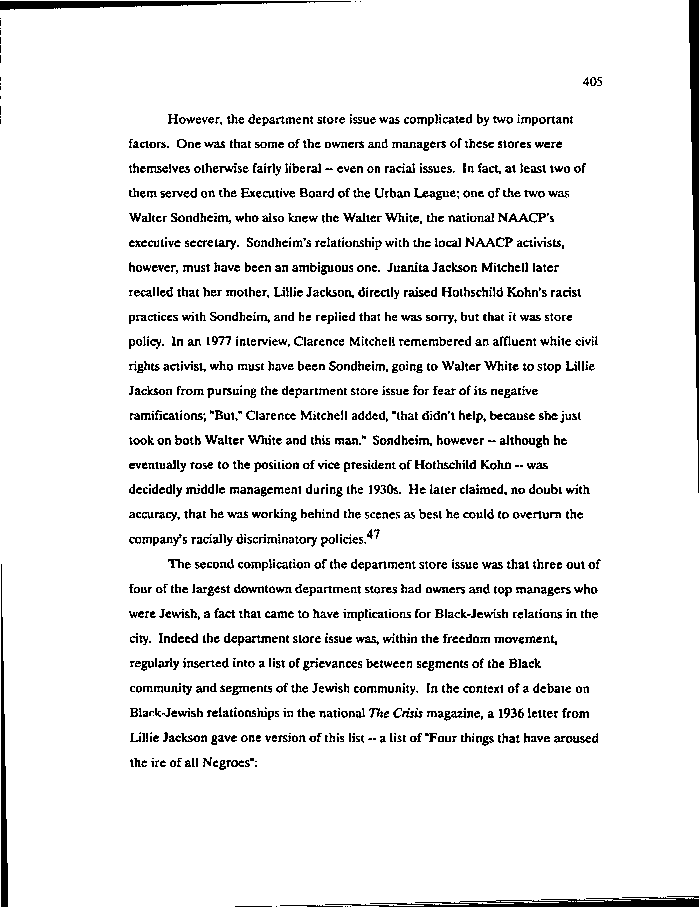|
405
However, the department store issue was complicated by two important
factors. One was that some of the owners and managers of these stores were
themselves otherwise fairly liberal - even on racial issues. In fact, at least two of
them served on the Executive Board of the Urban League; one of the two was
Walter Sondheim, who also knew the Walter White, the national NAACP's
executive secretary. Sondheim's relationship with the local NAACP activists,
however, must have been an ambiguous one. Juanila Jackson Mitchell later
recalled that her mother, Lillie Jackson, directly raised Hothschild Kohn's racist
practices with Sondheim, and he replied that he was sorry, but that it was store
policy. In an 1977 interview, Clarence Mitchell remembered an affluent white civil
rights activist, who must have been Sondheim, going to Walter White to stop Lillie
Jackson from pursuing the department store issue for fear of its negative
ramifications; "But," Clarence Mitchell added, "that didn't help, because she just
took on both Walter White and this man." Sondheim, however - although he
eventually rose to the position of vice president of Hothschild Kohn — was
decidedly middle management during the 1930s. He later claimed, no doubt with
accuracy, that he was working behind the scenes as best he could to overturn the
company's racially discriminatory policies.
The second complication of the department store issue was that three out of
four of the largest downtown department stores had owners and top managers who
were Jewish, a fact that came to have implications for Black-Jewish relations in the
city. Indeed the department store issue was, within the freedom movement,
regularly inserted into a list of grievances between segments of the Black
community and segments of the Jewish community. In the context of a debate on
Black-Jewish relationships in the national TJie Crisis magazine, a 1936 letter from
Lillie Jackson gave one version of this list - a list of "Four things that have aroused
the ire of all Negroes":
|

